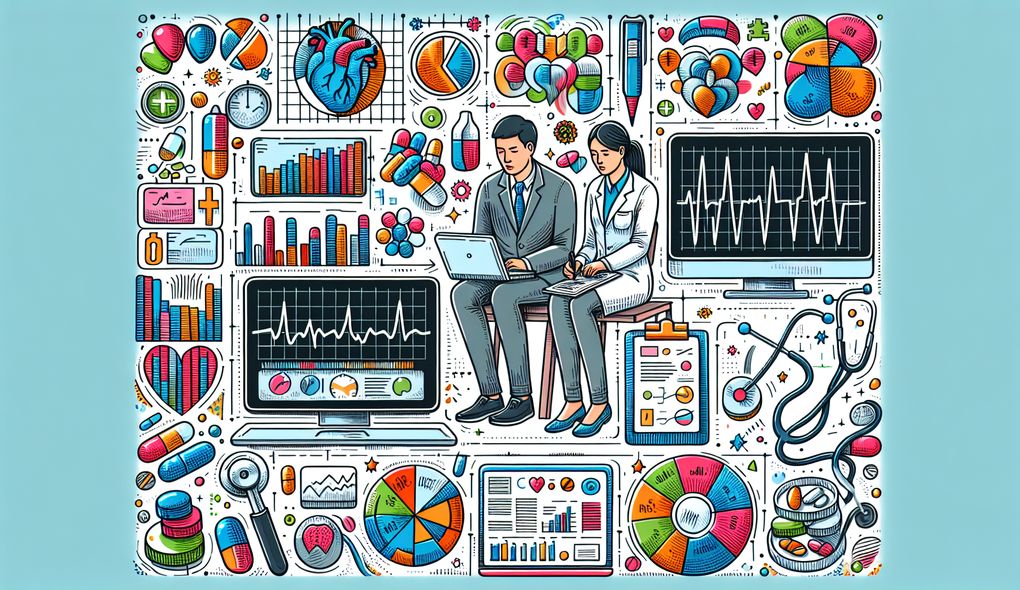Tell us about a time when you had to present complex data in a way that was easily understood by non-technical stakeholders.
SENIOR LEVEL

Sample answer to the question:
In my previous role as a Health Data Analyst, I had to present complex data to non-technical stakeholders on a regular basis. One example was when I conducted a study on patient readmission rates in a hospital. The data was quite complex, including multiple variables such as age, medical conditions, and length of stay. To make it easily understandable, I created visually appealing charts and graphs using data visualization software. I also prepared a comprehensive report that summarized the findings and provided actionable recommendations to reduce readmission rates. During the presentation, I focused on explaining the key takeaways from the data and how they related to the hospital's goals of improving patient care and reducing costs. I received positive feedback from the stakeholders, who appreciated the clarity of the presentation and the actionable insights provided.
Here is a more solid answer:
In my previous role as a Health Data Analyst, I had multiple opportunities to present complex data to non-technical stakeholders. One notable example was when I analyzed data on the effectiveness of a new treatment protocol for a specific disease. The data consisted of various variables, including patient demographics, treatment outcomes, and cost. To ensure easy understanding, I created visually appealing charts and graphs that highlighted the key findings and trends. Additionally, I prepared a detailed report that explained the data analysis process and presented the results in a clear and concise manner. During the presentation, I focused on addressing the stakeholders' concerns and questions, providing them with actionable insights to support their decision-making process. The stakeholders commended my ability to break down complex information and make it accessible to a non-technical audience.
Why is this a more solid answer?
The solid answer expands on the basic answer by providing more specific details about the data analysis process and the methods used to present the data. It also highlights the candidate's ability to address stakeholders' concerns and provide actionable insights. However, it could still be improved by addressing the evaluation area of leadership and mentorship abilities.
An example of a exceptional answer:
In my role as a Senior Health Data Analyst, I had the opportunity to present complex data to a group of non-technical stakeholders consisting of healthcare providers, policy makers, and administrators. One particular project involved analyzing data on patient outcomes and cost efficiency in a large hospital network. The data was incredibly complex, encompassing various variables such as patient demographics, medical conditions, and treatment protocols. To ensure clarity, I employed a multi-faceted approach. First, I created visually appealing and interactive dashboards using Tableau, which allowed stakeholders to explore the data on their own. I also developed a comprehensive report that incorporated visualizations, concise summaries, and actionable recommendations. During the presentation, I focused on understanding the stakeholders' needs and tailoring the information accordingly. I encouraged active participation and fostered a collaborative environment, promoting discussions around the data and its implications for decision-making. The stakeholders were impressed with the depth of analysis, the clarity of communication, and the tangible recommendations provided, resulting in the implementation of several data-driven initiatives.
Why is this an exceptional answer?
The exceptional answer goes above and beyond by providing specific details about the complexity of the data and the candidate's approach to presenting it. It also highlights the candidate's leadership and mentoring abilities by fostering a collaborative environment and encouraging active participation. The answer demonstrates a comprehensive understanding of the job responsibilities and evaluation areas.
How to prepare for this question:
- Familiarize yourself with data visualization tools such as Tableau or Power BI to effectively present complex data.
- Practice explaining complex concepts in a simple and concise manner, focusing on the key takeaways.
- Develop your report writing skills, ensuring that you can communicate complex data in a clear and understandable way.
- Stay updated on the latest advancements in health data analytics and technology to incorporate innovative approaches in your presentations.
- Highlight any previous experience in collaborating with non-technical stakeholders on data analysis and presentation.
What are interviewers evaluating with this question?
- Analytical and problem-solving skills
- Communication and report writing skills
- Ability to work collaboratively
- Attention to detail and accuracy
- Leadership and mentorship abilities

